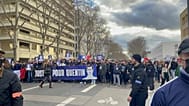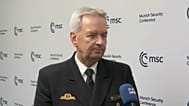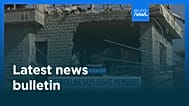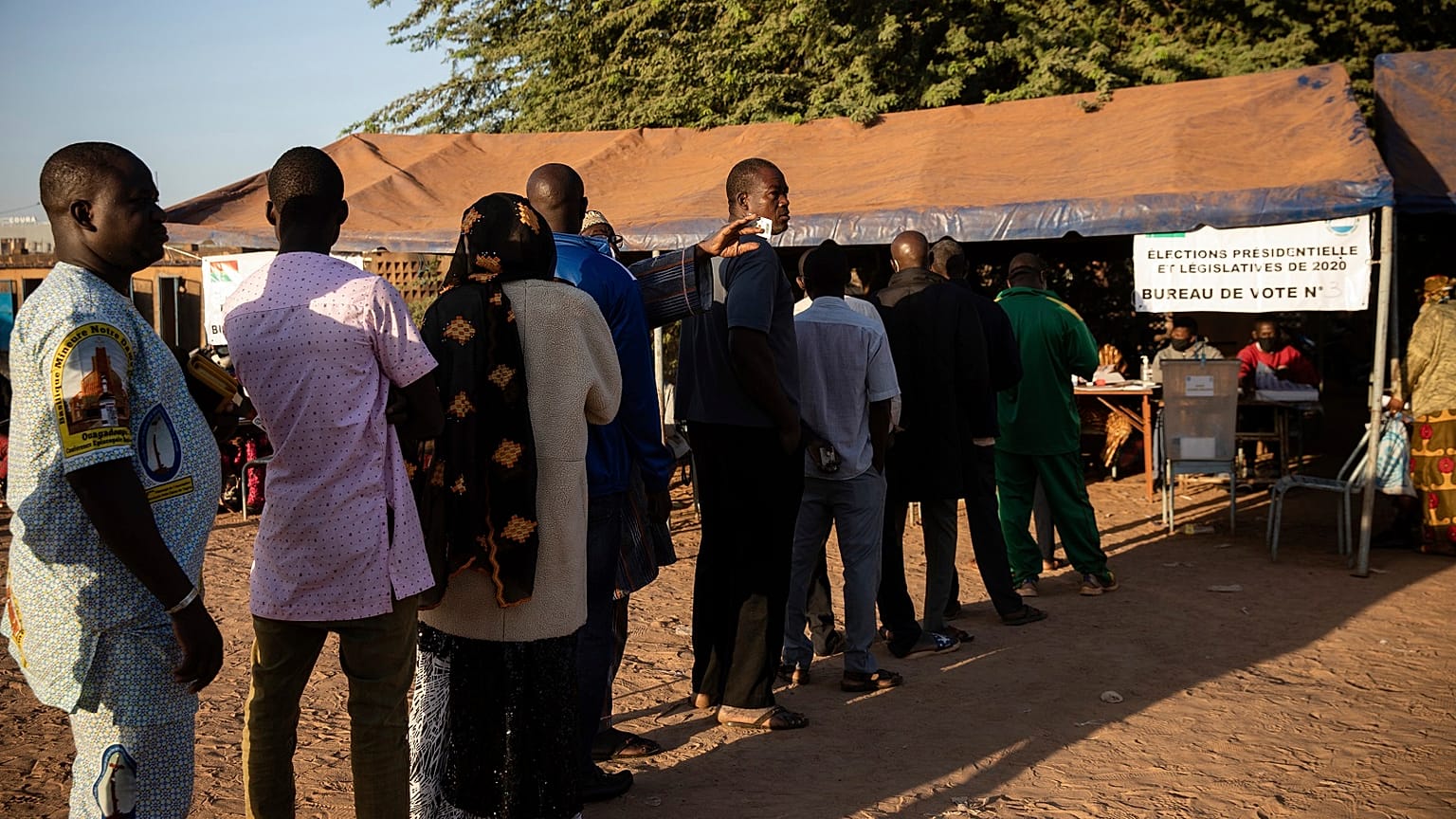While polling officials say the election is running smoothly, voters in some parts of the country have been threatened by Jihadists not to cast their vote.
Voters went to the polls on Sunday in Burkina Faso for presidential and legislative elections that have been marred by ongoing extremist violence in this landlocked West African nation.
 ADVERTISEMENT
ADVERTISEMENT
 ADVERTISEMENT
ADVERTISEMENT
President Roch Marc Christian Kabore has promised to secure the country and is vying for another five years against 12 other candidates.
Kabore is expected to win but the opposition hopes to split the vote, depriving him of the 51 per cent support needed for an outright victory in the first round. It then plans to form a coalition behind the strongest opposition candidate for the second round of voting.
This election is a major test for the nation’s young democracy in the face of rising attacks. A failure to hold a peaceful, transparent election in this African nation of 21 million people could give extremist groups who accuse the government of being ineffective a boost, experts say. But violence has cut off large swaths of the country, leaving people unable to register or cast ballots.
A change in Burkina Faso’s electoral code this year means that election results will be valid even if people can’t vote in parts of the country. Civilians in hard-hit areas say they’re already being threatened not to vote by jihadis.
A "number of polling stations" have been closed because of "threats," Electoral Commission Chairman Newton Ahmed Barry said on Sunday.
"There are a number of polling stations that had opened in the east and in other regions that had to close because of the threats," he said without elaborating further. "Individuals have banned people from taking part in the vote," he added in a mid-day review, although he said, "on the whole (...) everything is going well".
In the capital Ouagadougou, dozens of people lined up at polling stations before sunrise Sunday.
Oumar Zorome, 55, was the first to vote in the city's Patte D’Oie district and is backing Kabore, who he says has built roads and is not responsible for the country's struggles with extremists.
"I’m voting for the change in this country that’s already been taking place to continue," he said.
With police guarding polling stations, poll worker Habibata Ouedraogo said everything was running smoothly so far but she was concerned about the insecurity.
"I’m worried that a voting station could be targeted," she said.
Kabore urged citizens to vote as he cast his ballot Sunday.
"I’m calling on all Burkinabe not to be lazy and go vote. It’s about the development of Burkina Faso, it’s about peace in our country, so it’s important that each Burkinabe vote," he said.
Voting also began in violence-scarred regions in the country where just weeks ago, officials weren’t sure it would be possible to vote. In Barsalogho in the country's Centre North region, more than 60 people were in line when the polls opened amid added security, according to an official.
"I’m surprised. I didn’t think we’d be able to vote but things are calm so far," Saidou Wily, a government official in Barsalogho, told The Associated Press.
On Saturday, opposition candidates accused the ruling party of fraud, including bribing people. The parties also accused The National Independent Electoral Commission of making changes to the electoral map, Zephirin Diabre, a leading candidate from the Progress and Change Party, told a press conference.
He’s one of the main challengers, together with Eddie Komboigo, head of the Congress for Democracy and Progress, the party of former President Blaise Compaore, who was ousted by a popular uprising in 2014.
Crisis rooms have been set up around the city, where organizations can monitor the voting to check for irregularities, voter suppression and violence, according to Codel, a local organization focused on elections.
Violence linked to al-Qaida and Islamic State has displaced more than 1 million people, and cut off swaths of the country, preventing at least 166,000 new voters from being able to register, according to election officials.
Results are expected in the next few days.














